Edited by Patrick A. Mello and Falk Ostermann
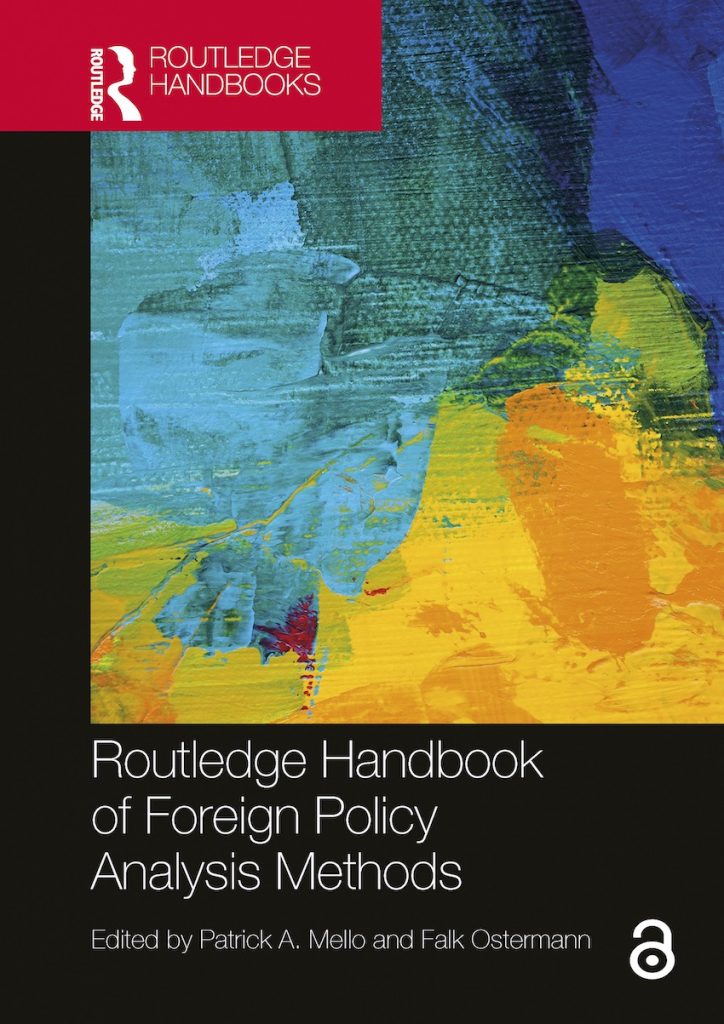
Book Description
The disintegration and questioning of global governance structures and a re-orientation toward national politics combined with the spread of technological innovations such as big data, social media, and phenomena like fake news, populism, or questions of global health policies make it necessary for the introduction of new methods of inquiry and the adaptation of established methods in Foreign Policy Analysis (FPA). This accessible Handbook offers 34 chapters and a Foreword from 46 international contributors covering a diverse range of new and established FPA methods. Embracing methodological pluralism and a belief in the value of an open discussion about methods’ assumptions and diverging positions, it provides new, state-of-the-art research approaches, as well as introductions to a range of established methods. Each chapter follows the same approach, introducing the method and its development, discussing strengths, requirements, limitations, and potential pitfalls while illustrating the method’s application using examples from empirical research. Embracing methodological pluralism and problem-oriented research that engages with real-world questions, the authors examine quantitative and qualitative traditions, rationalist and interpretivist perspectives, as well as different substantive backgrounds. The book will be of interest to a wide range of scholars and students in global politics, foreign policy, and methods-related classes across the social sciences.
From the Foreword
‘The chapters themselves do an admirable job explicating their ways of producing knowledge […] After all, the task of the practicing scholarly researcher is not to mechanically reproduce firmly established doctrine, but to produce new knowledge. The pluralist, compendium oriented ethos of this handbook is a positive contribution to that ongoing endeavor.’
Patrick Thaddeus Jackson, Professor of International Studies in the School of International Service, American University in Washington, DC, USA
Book Endorsements
‘The editors have creatively engaged a broad array of cross-national experts who collectively have captured multiple perspectives and important advances in Foreign Policy Analysis. The result is a vital resource both for experts and those seeking an introduction to this rapidly advancing domain of inquiry.’
Charles F. Hermann, Brent Scowcroft Chair in International Affairs, Texas A&M University, USA
‘This handbook offers the reader a spectrum of methods for studying the relevance and influence of individuals and decision making on foreign policy all in one place. It challenges the reader interested in exploring the foreign policy process to consider new ways of examining how foreign policy decisions are made and the nature of those decisions. It presents us with a range of perspectives on Foreign Policy Analysis, ways of interpreting what is being perceived and by whom, how to assess the nature of the leadership setting and leaders, and how to do so with both qualitative and quantitative methods as well as new technologies. It is well worth reading and keeping handy when planning and engaging in foreign policy analysis!’
Margaret G. Hermann, Cramer Professor of Global Affairs, Maxwell School, Syracuse University, USA
‘In this incredibly rich collection of FPA methods, Mello and Ostermann bring together an excellent group of scholars discussing not only methods (and their tools and application) but also ontological and epistemological perspectives pertinent to Foreign Policy Analysis and International Relations. The reader gains a nuanced understanding of how to think about and analyze foreign policies. This is a thought-provoking and fascinating read for everyone who wants to (re)familiarize themselves with a broad plethora of new and more established available methods. And it is a wonderful reminder that scholarly adventures can rest on methodological pluralism.’
Stéphanie Hofmann, Professor and Joint Chair in International Relations at the Department of Political and Social Sciences and the Robert Schuman Centre of Advanced Studies, European University Institute, Italy
‘The Routledge Handbook of Foreign Policy Analysis Methods makes a significant contribution to the study of and research on foreign policy by bringing together a very diverse set of methodological and analytical tools for the subfield. The Handbook is indispensable for foreign policy researchers. I highly recommend reading it and using it. It will make a lasting and beneficial impact.’
Juliet Kaarbo, Professor of Foreign Policy, University of Edinburgh, UK
‘The Routledge Handbook of Foreign Policy Analysis Methods is the best and most comprehensive methodology guide for students of Foreign Policy Analysis. It shows how diverse methodologies are used in the field and it suggests how important it is to combine those different scholarly approaches in analyzing foreign policies. The rich 34 chapters make the book a “must-buy” item for scholars of International Relations and Political Science as well as practitioners involved in diplomacy and foreign policy making.’
Atsushi Tago, Professor of International Relations, Waseda University, Japan, and Global Fellow, Peace Research Institute Oslo (PRIO), Norway
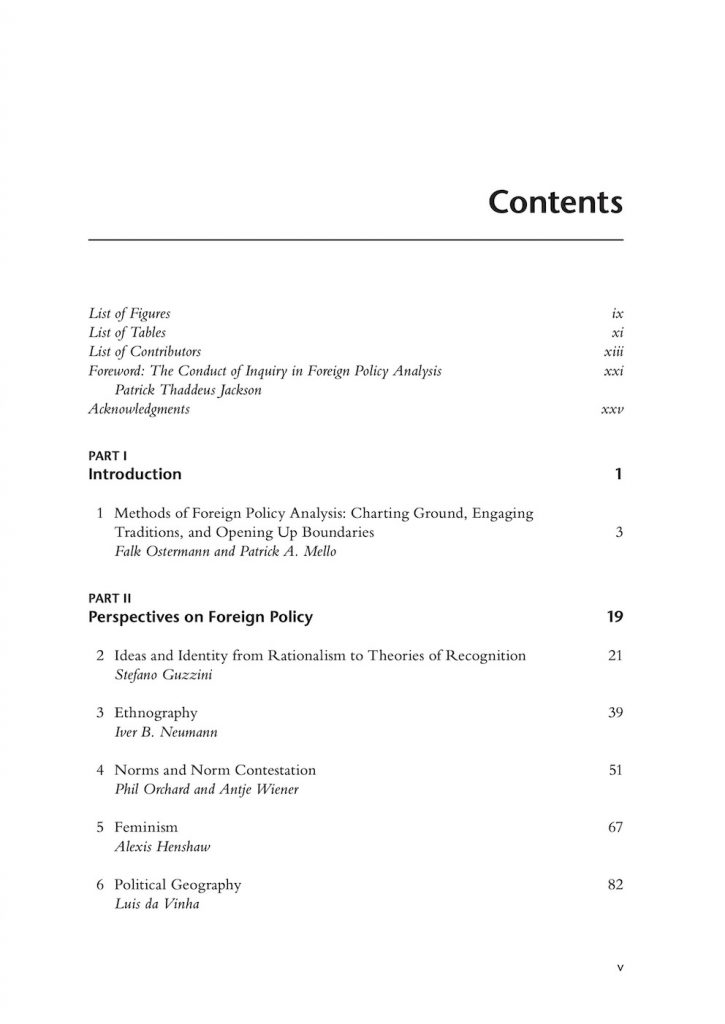
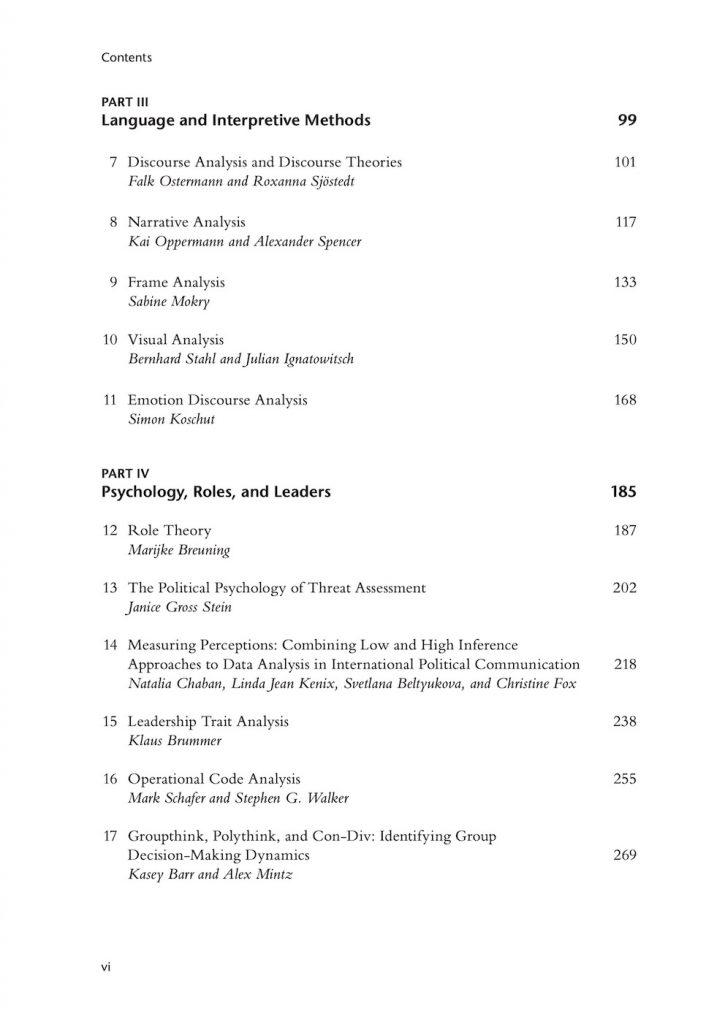
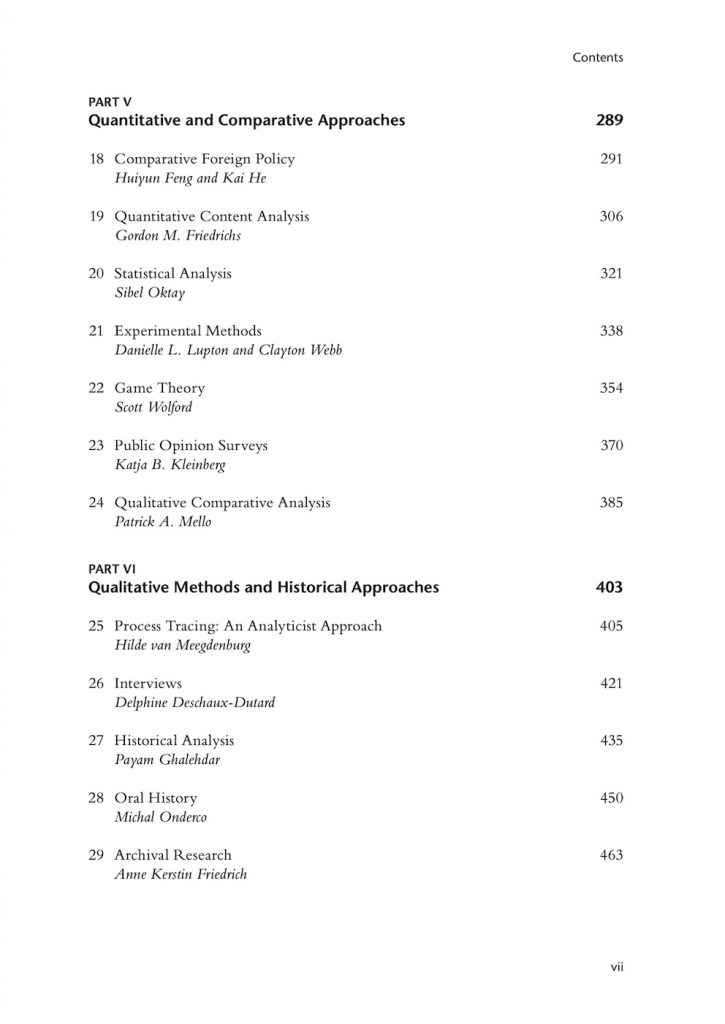
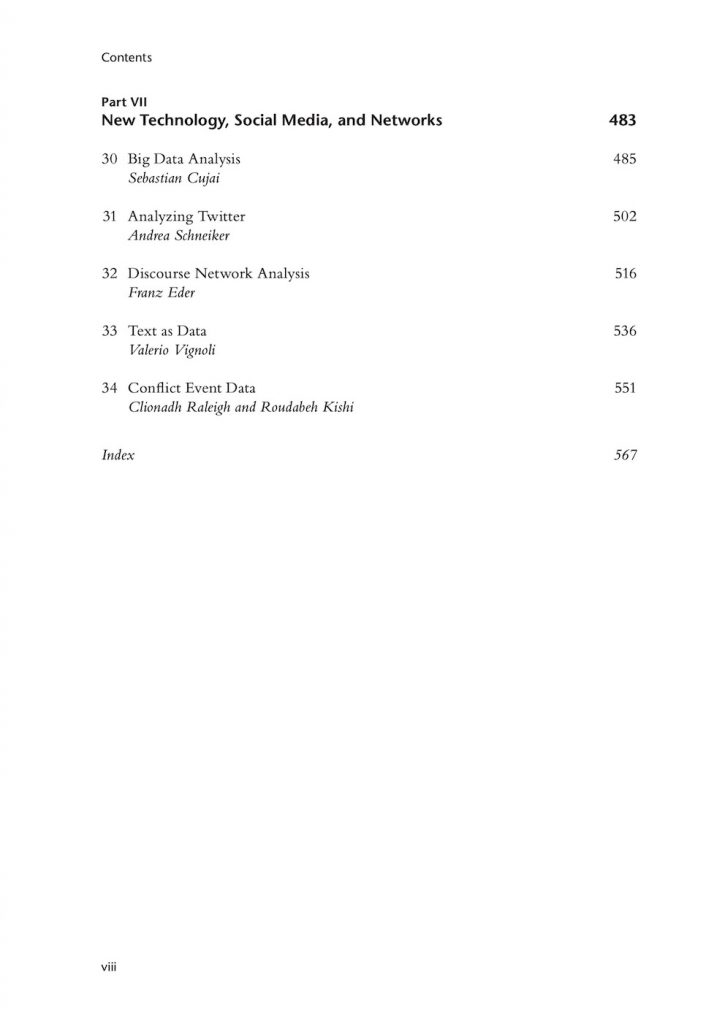
Book Information
602 pages, 59 Illustrations
DOI: 10.4324/9781003139850
ISBN (hardcover): 978-0-367-68976-6
ISBN (paperback): 978-0-367-68980-3
ISBN (ebook): 978-1-003-13985-0
Book Orders
The book is available for order as hardcover, softcover, and ebook.